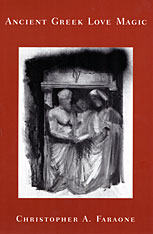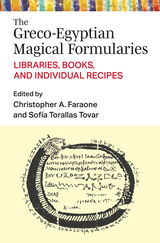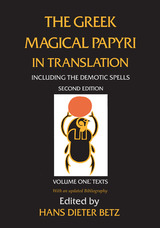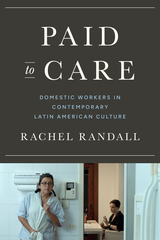
The ancient Greeks commonly resorted to magic spells to attract and keep lovers--as numerous allusions in Greek literature and recently discovered "voodoo dolls," magical papyri, gemstones, and curse tablets attest. Surveying and analyzing these various texts and artifacts, Christopher Faraone reveals that gender is the crucial factor in understanding love spells. There are, he argues, two distinct types of love magic: the curselike charms used primarily by men to torture unwilling women with fiery and maddening passion until they surrender sexually; and the binding spells and debilitating potions generally used by women to sedate angry or philandering husbands and make them more affectionate.
Faraone's lucid analysis of these spells also yields a number of insights about the construction of gender in antiquity, for example, the "femininity" of socially inferior males and the "maleness" of autonomous prostitutes. Most significantly, his findings challenge the widespread modern view that all Greek men considered women to be naturally lascivious. Faraone reveals the existence of an alternate male understanding of the female as "naturally" moderate and chaste, who uses love magic to pacify and control the "naturally" angry and passionate male. This fascinating study of magical practices and their implications for perceptions of male and female sexuality offers an unusual look at ancient Greek religion and society.

In Greco-Roman Egypt, recipes for magical undertaking, called magical formularies, commonly existed for love potions, curses, attempts to best business rivals—many of the same challenges that modern people might face. In The Greco-Egyptian Magical Formularies: Libraries, Books, and Individual Recipes, volume editors Christopher Faraone and Sofia Torallas Tovar present a series of essays by scholars involved in a multiyear project to reedit and translate the various magical handbooks that were inscribed in the Roman period in the Greek or Egyptian languages. For the first time, the material remains of these papyrus rolls and codices are closely examined, revealing important information about the production of books in Egypt, the scribal culture in which they were produced, and the traffic in single recipes copied from them. Especially important for historians of the book and the Christian Bible are new insights in the historical shift from roll to codex, complicated methods of inscribing the bilingual papyri (in which the Greek script is written left to right and the demotic script right to left), and the new realization that several of the longest extant handbooks are clearly compilations of two or more shorter handbooks, which may have come from different places. The essays also reexamine and rethink the idea that these handbooks came from the personal libraries of practicing magicians or temple scriptoria, in one case going so far as to suggest that two of the handbooks had literary pretensions of a sort and were designed to be read for pleasure rather than for quotidian use in making magical recipes.

The Greek Magical Papyri in Transition is an invaluable resource for scholars in a wide variety of fields, from the history of religions to the classical languages and literatures, and it will fascinate those with a general interest in the occult and the history of magic.
"One of the major achievements of classical and related scholarship over the last decade."—Ioan P. Culianu, Journal for the Study of Judaism
"The enormous value of this new volume lies in the fact that these texts will now be available to a much wider audience of readers, including historians or religion, anthropologists, and psychologists."—John G. Gager, Journal of Religion
"[This book] shows care, skill and zest. . . . Any worker in the field will welcome this sterling performance."—Peter Parsons, Times Literary Supplement
READERS
Browse our collection.
PUBLISHERS
See BiblioVault's publisher services.
STUDENT SERVICES
Files for college accessibility offices.
UChicago Accessibility Resources
home | accessibility | search | about | contact us
BiblioVault ® 2001 - 2024
The University of Chicago Press









